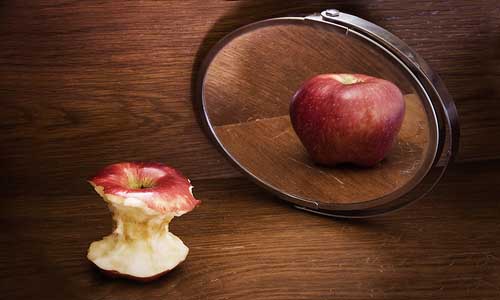Let me throw this on the table before we get too deep: I have never been grossly overweight, but I have never been skinny either. Actually, I’ve always hung around that might be fat/might just be chubby range up until my senior year of high school. That was the point where I decided to finally take my body and the insecurities I’ve always had into my hands, via calorie counting. And it worked wonderfully for me.
I downloaded an app to monitor my food intake, namely calorie consumption. It asks for some pretty basic info: your height, gender, age, current weight, goal weight and how much you wanted to lose per week. Throw all that into a blender and out pops this number which tells you how many calories you’re allowed to eat each day.

Photo by Luna Zhang
To me it’s like a game; I always wanted to see how I could balance my meals so I could have Moe’s for dinner or the ice cream sundae the rest of my family was having. Most of the time, I won the game and got the food I was craving while staying on track. I lost 22 lbs, and I’m ultimately healthier and more confident because of it.
On the flip side, I can’t indulge without knowing roughly how many calories I ate that day. It’s burned in my memory how many calories 1 large egg is (70, if you were curious), or the caloric content of my favorite order at T-flats. It doesn’t even matter if I’m not actively counting. There’s a small part of my brain always asking if I should’ve really eaten that burger, or if I needed that half price froyo.
The game can become a dangerous obsession if you let it. You start thinking about how to cheat your system, especially on days you’ve slipped. The guilt threatens to overwhelm you and you make deals with yourself, risky deals like saying you’ll only eat 200 calories tomorrow to correct for the mistake today.

Photo Courtesy of www.politic365.com
Falling into a cycle like this can be a stressor that leads to the development of an eating disorder. Food becomes an enemy and you feel miserable instead of empowered for taking control of your health.
I never truly cut food out of my diet because of calorie counting, but I’ve definitely restricted it. Basically, a lot of carbs don’t find their way onto my plate since I’d rather save the calories for something with more protein. And super sugary drinks were kicked to the curb a long time ago. I’ve never been huge on soda or juice, but my Starbucks orders only come in terms of sugar free syrup and skim milk, please.
When I am actively counting, I’ve always noticed that I appreciate the food I eat more. If I save room for dessert, it tastes way better. I know what foods to stay away from at restaurants, and I know foods with low calorie counts that make for great snacks (sugar free pudding cups are a great way to get your chocolate fix while dieting).
I’m not advocating that calorie counting was a bad choice. In fact, I’m working a program right now to shed a few pounds. My first experience with calorie counting taught me the value of protein and how many fruits and veggies I needed to feel my best. You learn what works for you, and always balance what you eat between the good stuff and the treats.


